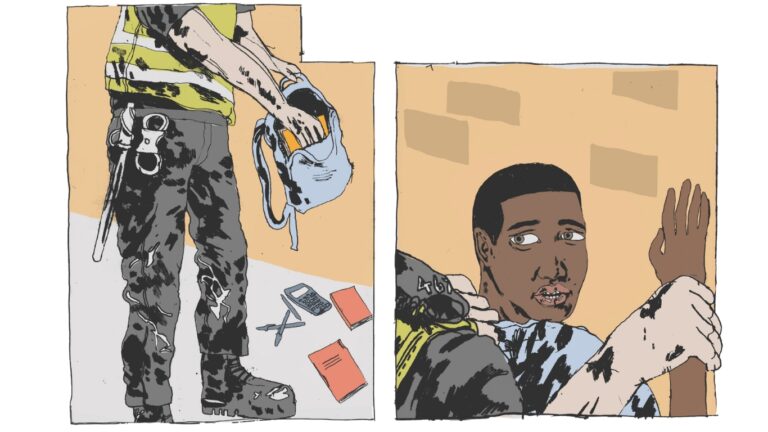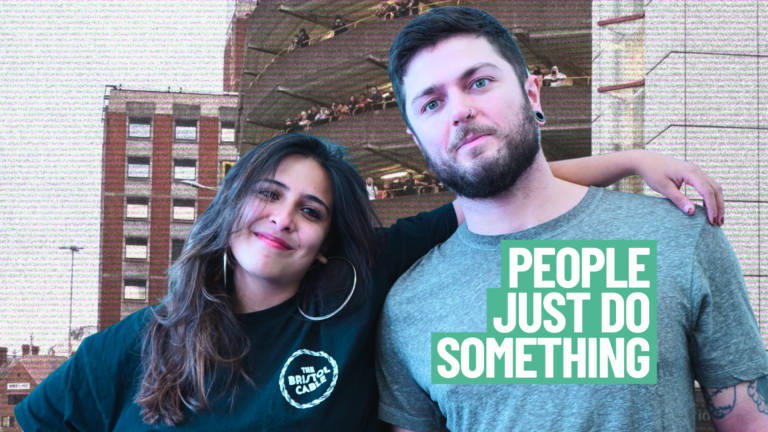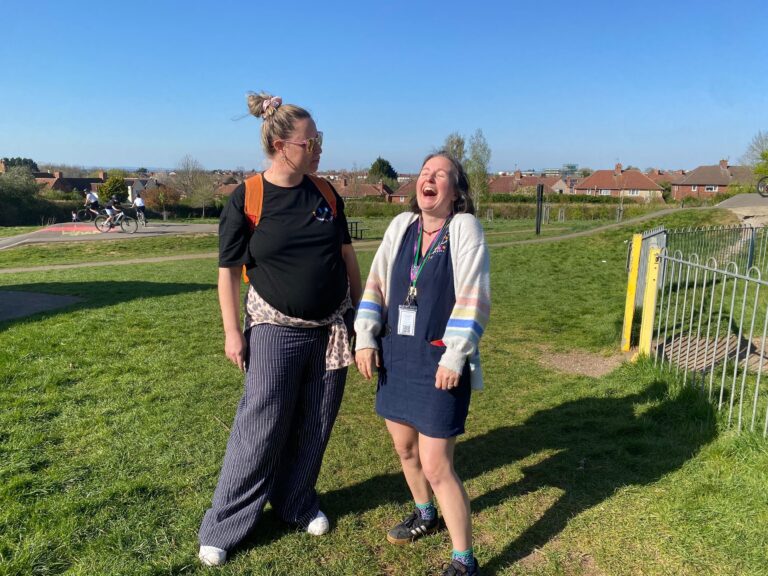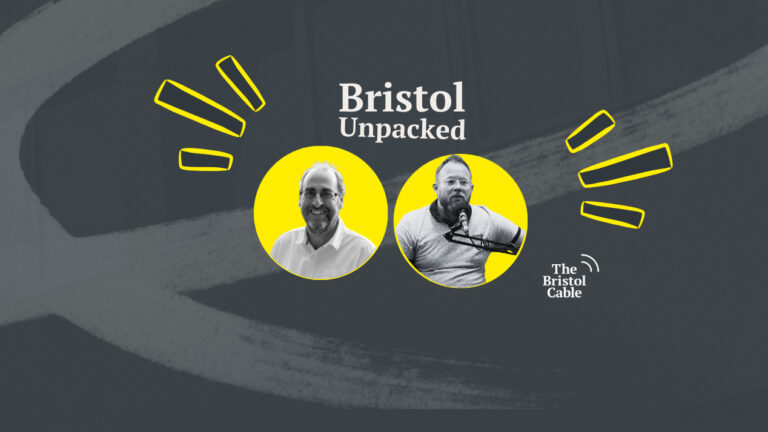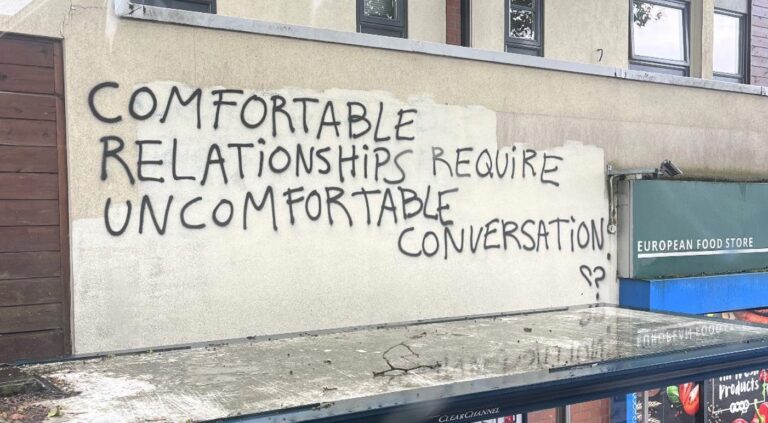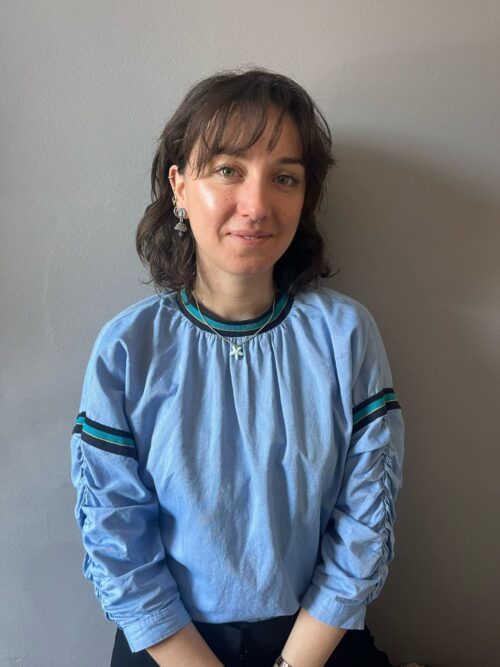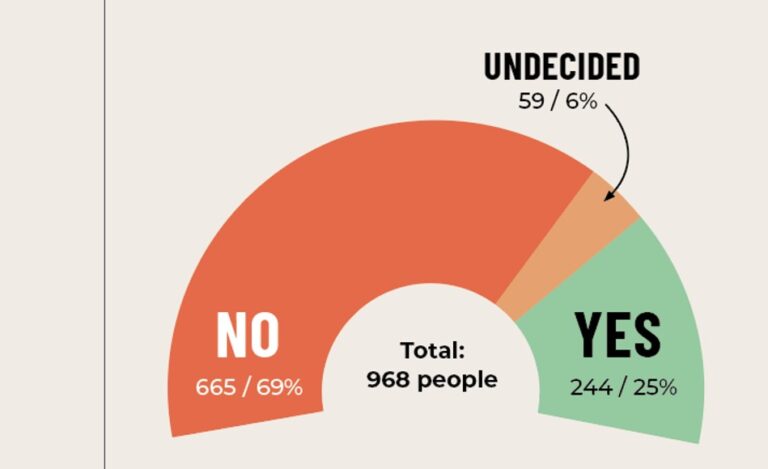Door to door divestment: Lessons from the Bristol Apartheid-Free Zone
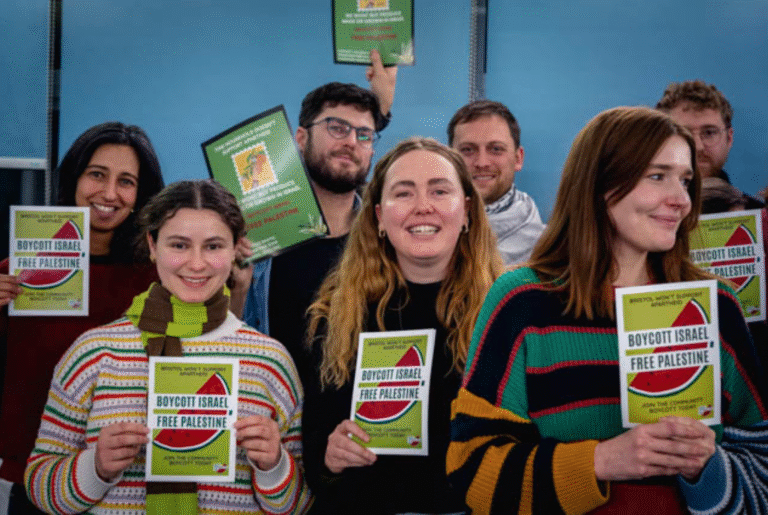
In the months following Israel’s invasion of Gaza after 7 October 2023, pro-Palestine marches across the UK swelled to record numbers.
“You go to a demo, you let out rage and anguish, and then you go home,” says Sacha, a community organiser from St Paul’s. “We did that every week — I’d strap my baby to my chest, march and scream. But after a while, it was incredibly isolating.”
She and Matt, both members of ACORN tenants’ union, wanted to channel that energy into something lasting. The result was the Bristol Apartheid-Free Zone (BAFZ) — a local boycott campaign targeting Israeli goods and building pressure, street by street, shop by shop.
A Legacy of Resistance
The phrase “Apartheid-Free Zone” echoes the grassroots boycott movements of the 1980s, when Bristol activists pushed local shops to stop trading with apartheid South Africa.
“There’s history here,” says Matt. “St Paul’s was one of the largest UK local boycotts. It was led by Young, Black, working-class activists who went door to door and made the case.”
Today, BAFZ draws a direct line between that legacy and the global movement for Palestinian liberation. “Palestine is the canary in the coal mine,” Matt says. “If we don’t act now, we’re complicit.”
“Agency is the opposite of trauma. We give people a role and a goal — and that heals.”
Sacha
At the heart of the campaign is a simple ask: pledge not to buy Israeli produce — and support local businesses that do the same.
“We’re not asking people to topple the system overnight,” says Sacha. “We’re asking them to draw a line. To say, ‘No, we won’t stock this. No, we won’t buy this.’ It’s a refusal. A boundary.”
Their approach relies on the fundamentals of community organising: one-to-one conversations, consistent follow-up, and working with existing networks. “You start where you’re strong,” Matt says. “People here care. They just didn’t always know how to act.”
Shops, Solidarity and Social Hubs
BAFZ began with door knocking across St Paul’s and Easton, encouraging residents to take the pledge. “It’s a soft entry point,” says Matt. “You don’t have to be an activist to decide you don’t want to be complicit.”
From there, they approached local shops — many already quietly avoiding Israeli goods. “What they needed was reassurance,” says Sacha. “To know their community would back them.”
So far, nearly 30 shops have signed on. “Corner shops are hubs,” Sacha adds. “If your grocer takes a stand, people notice. It sparks conversations.”
But it hasn’t been without resistance. Some shopkeepers feared being targeted under policies like PREVENT. “We had to show this wasn’t just a ‘Muslim issue’,” says Matt. “This is cross-community.”
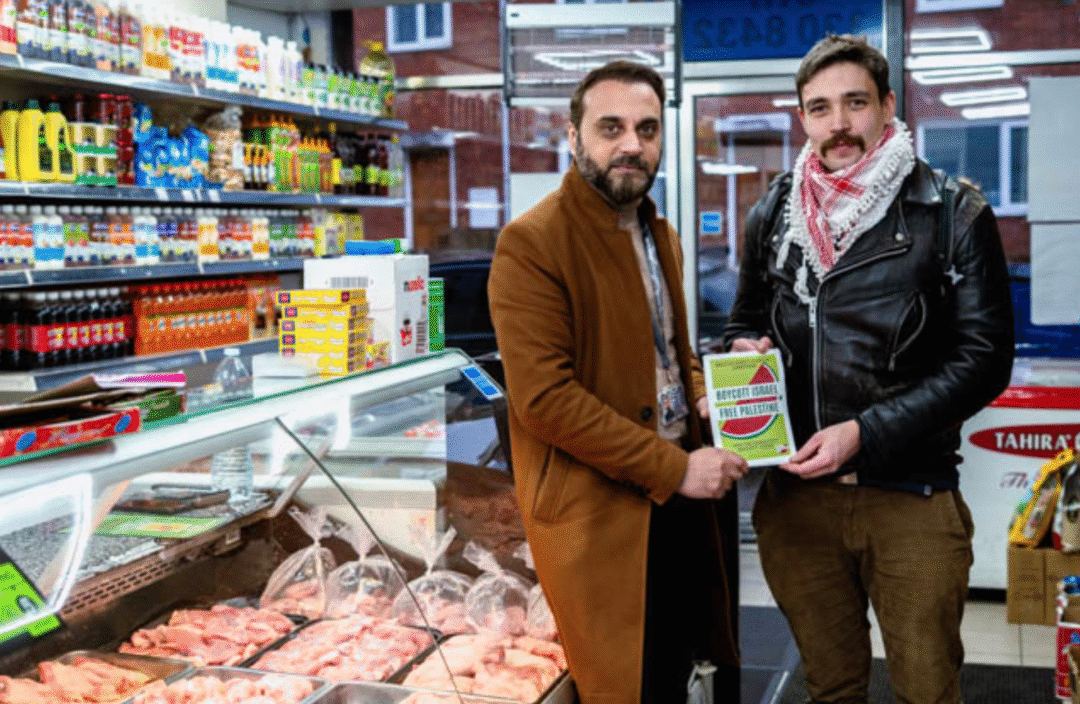
Still, momentum is growing: at the time of writing, they’ve gathered over 1,864 pledges, 63 shops have signed up to the boycott, and 57 businesses are refusing to buy or sell Israeli goods. They’ve knocked every door in two neighbourhoods, with dozens of active volunteers keeping the effort going.
“Our people are the backbone,” Matt says. “Rain or shine, they’re out there talking. Many had never done this before — now they’re leading teams.”
Support has come from all corners. A data-savvy volunteer built a database. A local mum set up a crèche. “Agency is the opposite of trauma,” Sacha says. “We give people a role and a goal — and that heals.”
Beyond the Factory Gates: Building Mass Power
BAFZ contrasts with high-profile direct actions like those led by Palestine Action against arms manufacturer Elbit Systems. While Matt and Sacha are clear in their admiration — “Those people are the best of us. Utter heroes,” says Matt.
But they’re taking a different path. Their focus is on accessibility. “Not everyone’s going to chain themselves to a factory gate,” Matt says. “But they will speak to their neighbour. They’ll talk to their shopkeeper.”
Sacha adds: “Elbit is one company. The decisions that keep arms firms going happen at a political level. We won’t shift that without a broad, organised base.”
Direct action has its limits, they argue. “It has a ceiling,” Matt says. “Community organising doesn’t. It builds working-class power from the ground up.”
Hear the full interview, Door to door divestment: the mum and dad building a boycott for Palestine. Listen and subscribe to People Just Do Something wherever you get your podcasts.
Independent. Investigative. Indispensable.
Investigative journalism strengthens democracy – it’s a necessity, not a luxury.
The Cable is Bristol’s independent, investigative newsroom. Owned and steered by more than 2,500 members, we produce award-winning journalism that digs deep into what’s happening in Bristol.
We are on a mission to become sustainable, and to do that we need more members. Will you help us get there?
Join the Cable today


